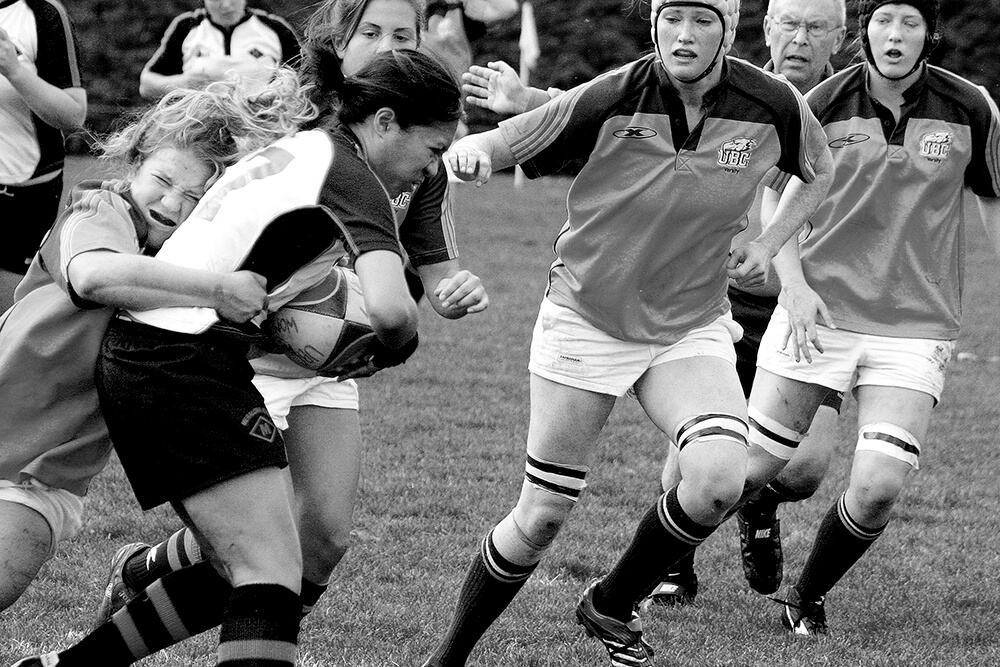What role does sport, including those participating in it in its elite form, play in upholding, indeed promoting, desirable ethical standards amongst wider society? It is a question often posed when we consider the expectations we have of sports stars – are they ‘role models’ for an easily influenced youth audience, for example, or are they merely representative of the population at large, and therefore, to have higher ethical, indeed moral, expectations of them may be unrealistic.
In 2002, Sport Marketing Quarterly published research considering why spectators were attracted to certain televised sports. Interestingly, motor racing was analysed alongside many other sports, including basketball, American football and baseball, in a study cited over 500 times in academic literature. A total of 12 so-called motivational constructs, including ‘aggression’ and ‘physical risk’, were ranked by participants to explain each sport’s appeal. The results confirmed that, except for golf – universally regarded as the embodiment of ethical sporting standards – spectators placed motor racing above all other alternatives due to its ‘value development’. Simply put, participants in the study recognised the sense of fair play, ethics and standards of sportsmanship motorsport provided and, excluding golf, placed it ahead of all others in exemplifying these desirable qualities. It’s why all major sporting bodies, notably FIFA, the NFL and IOC, have gradually introduced regulations designed to protect the integrity of their sports because, particularly for the next generation of sports fans, behaviours do matter.
Whilst it is appropriate to highlight the contribution athletes make as role models for sports fans, the complex nature of both investigating and managing the societal impact of elite sport is generally considerably more sophisticated. It is a topic addressed extensively by De Bosscher, Shibli & De Rycke, three academics with a global reputation for research in this field, in the journal European Sport Management Quarterly. They conclude, “A consistent finding across studies in this field is that more needs to be done by all stakeholders (including governing bodies of sport) … to secure and demonstrate positive societal outcomes whilst simultaneously reducing the negative outcomes of elite sport” (p.633). In other words, it is insufficient to point to elite sport and simply assert, in the absence of evidence, that it provides a universal good. Instead, positive societal outcomes should be demonstrated, amplified, and, where appropriate, embodied by participants in sports. As a result, governing bodies must evidence those circumstances under which such desirable outcomes are secured, which again underlines the importance of adopting an uncompromising approach to fair play and sportsmanship by addressing instances of poor conduct or unsportsmanlike behaviour where these arise.
Thus, sport, by its nature, is a social context that provides many opportunities to engage in behaviours that can have positive consequences for others. In the last decade, numerous studies have investigated moral and ethical behaviour in sports, increasingly so given sports’ global reach and influence. This has become possible through the evolution of the respected ‘Prosocial and Antisocial Behaviour in Sport’ scale (PABSS; Kavussanu & Boardley, 2009). Examining this phenomenon, the authors review numerous studies and conclude that ‘anti-social’ behaviour, such as examples of ‘verbal abuse’, ‘swearing’, and ‘arguing’, does, amongst other outcomes, exercise a profound impact on its intended recipient(s), including increased anger, burnout, and decreasing task and social cohesion. Perhaps, more than most studies of its kind, the work of Kavussanu & Boardley (2009) confirms that in sport, as in life, words do have a consequence.
All sporting federations are concerned with future generations of consumers and fans. Evaluating the critical factors in sports consumption decision-making of millennial sports fans was the focus of a seminal research study undertaken by Yim, Byon, Baker and Zhang, published in 2021. Through a detailed assessment of published studies in this field and from surveying the views of 300 ‘millennials,’ the researchers settled on five key traits of millennial fan sports consumption. These were a. technology-driven, b. community-driven, c. peer-pressure (FoMO), d. emotional consumption and e. fan engagement. Understanding this consumer group is critical to the long-term success of all sports organisations. Millennials do not merely listen to organisations; they want organisations to listen and respond to them. Insofar as they wish to be aligned with any one sport, it must promote an inclusive and positive community of followers, often through a welcoming social media presence, typically on Instagram, their social media platform of choice. It is not surprising, therefore, that sports federations are ever more focused on ensuring the inclusiveness of their sports and, in this regard, ensuring an environment free from unethical practices remains a priority.
Ethics and integrity issues manifest in sports through athletes’ adherence to the components of sportsmanship. Society places high expectations on many competitors to be appropriate role models, which, some argue, can prove increasingly unrealistic and undoubtedly beyond those of most other occupations. Nevertheless, it remains the case that the behaviour of high-profile sportsmen and women does influence the actions and opinions of others. An athlete displaying ‘anti-social’ behaviour towards a match official, a fellow competitor, or others can, in modern sports parlance, constitute a ‘trigger’ event, which can have real consequences for those targeted by these behaviours, especially online. There needs to be increased awareness, via safeguarding practices, educational initiatives and, where appropriate, sanctions, of the antecedents and implications of trigger events in sports, as increasingly illustrated in high-level sport. It is reasonable to conclude, therefore, that whilst ensuring any penalty issued by sports governing bodies, specifically regarding evidence of misconduct, is reasonable and proportionate, the need for a robust approach to such transgressions is founded on a wish to protect the integrity of its sport now and, crucially, for the next generation of sports fans.




